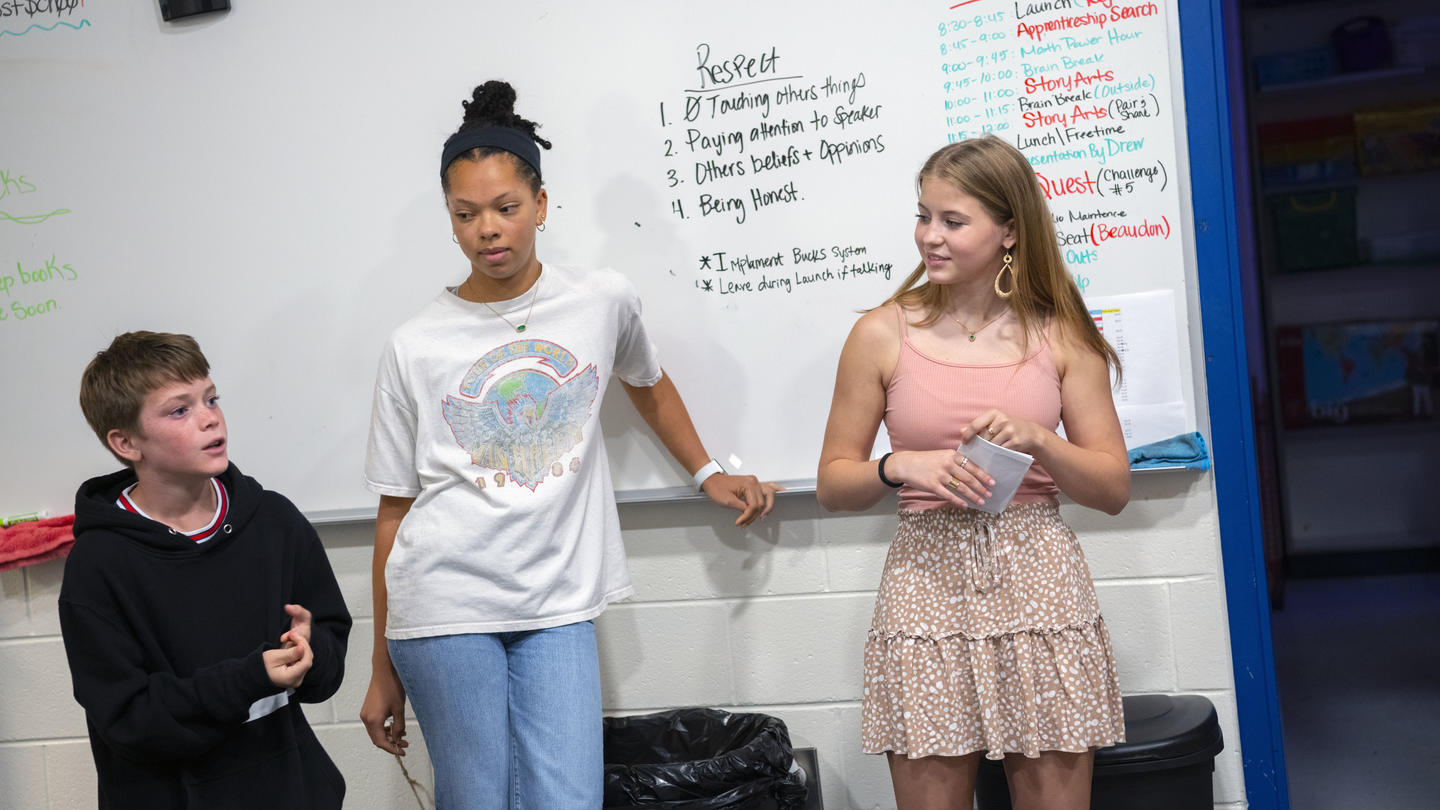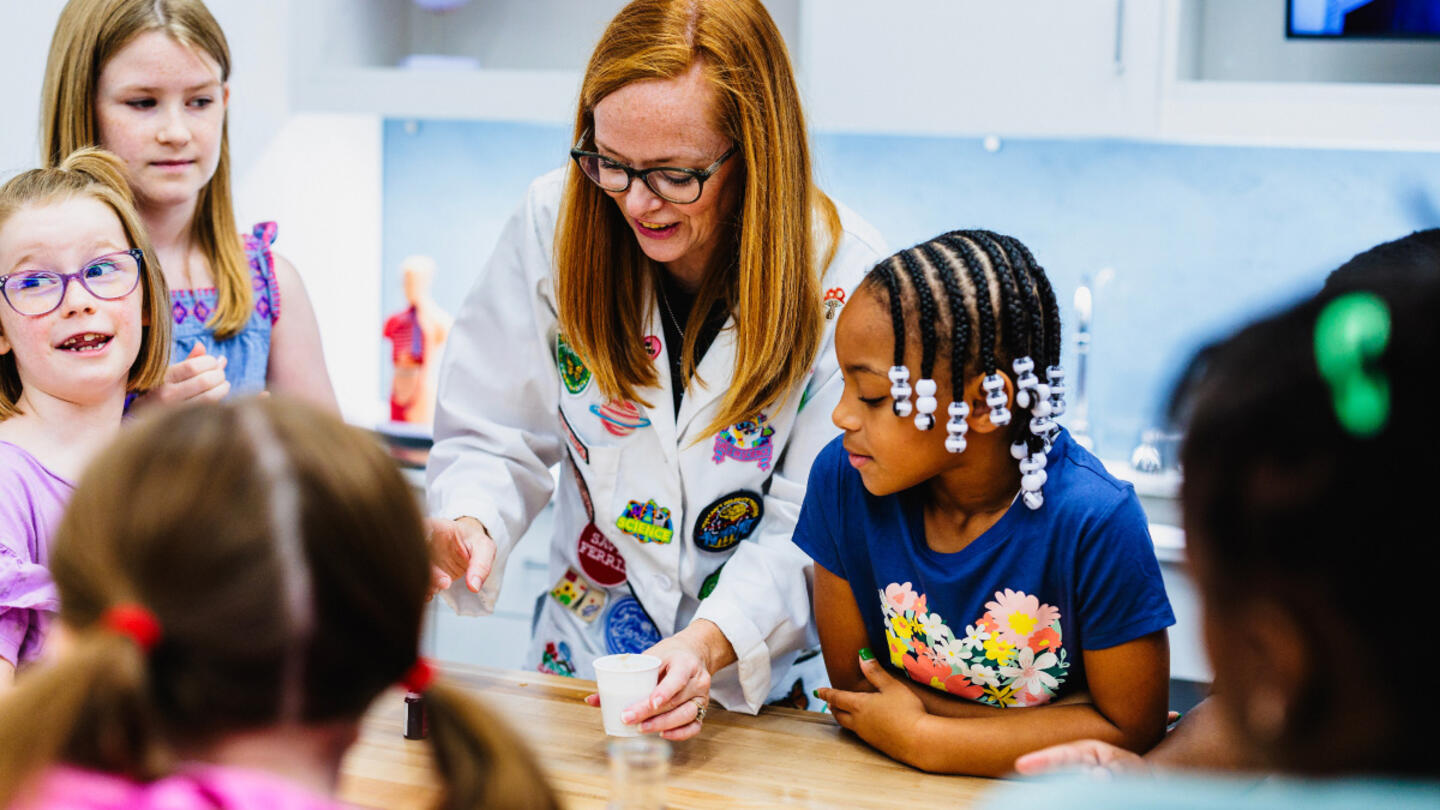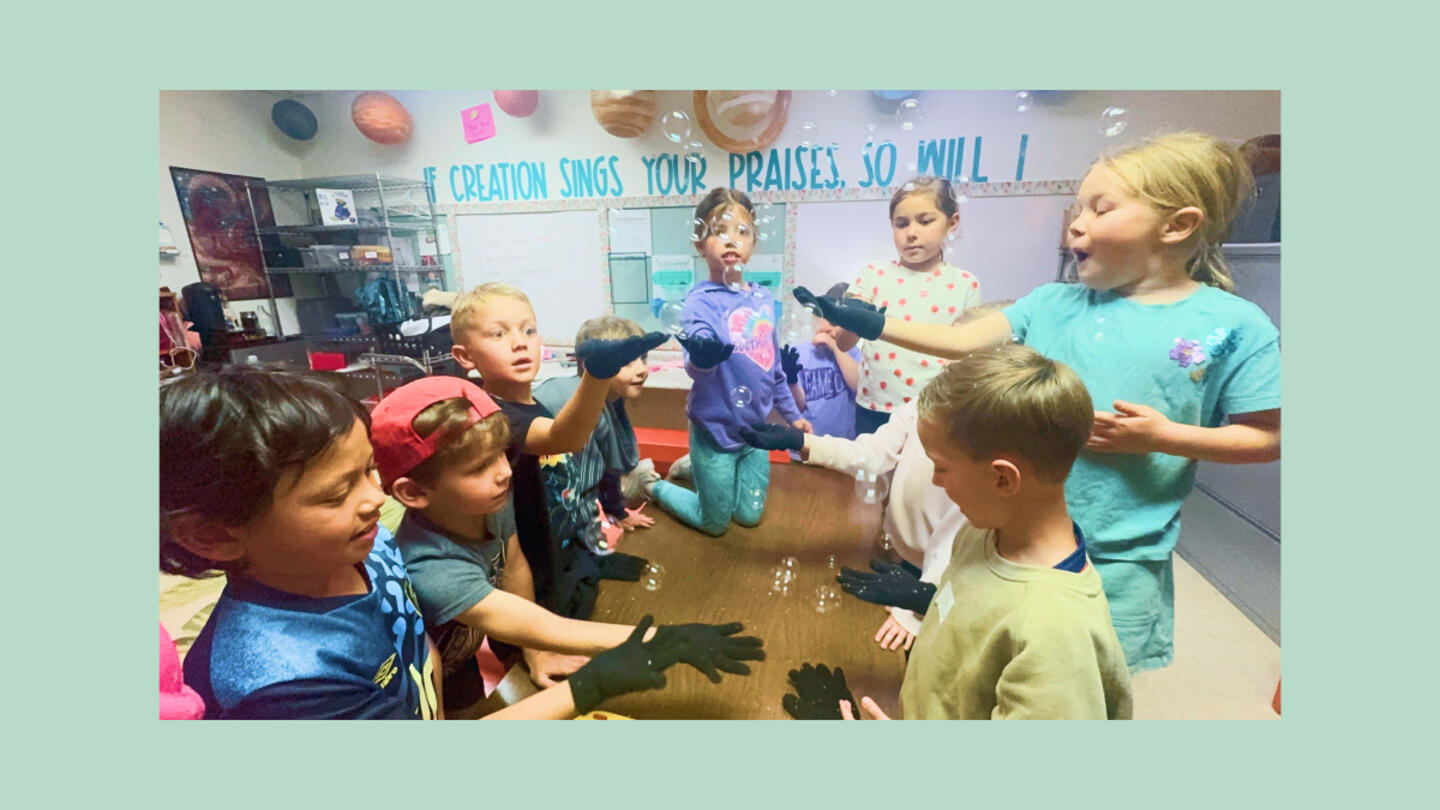When Jenny Clark's two sons struggled in public school, she knew she needed to do something more. The school blamed their struggles on their earlier homeschooling saying their non-traditional education path had left them behind, but Clark knew there was something more to the story.
She took her sons to be independently evaluated, where they were both found to be severely dyslexic and dysgraphic. However, when she presented their school with their diagnoses, the school wasn't able to provide the educational environment they needed.
Clark found that her children qualified for an Arizona Empowerment Scholarship Account (ESA), which provides funds toward independent education options for qualified students. With the ESA money, Clark's sons were able to access dyslexia-specific curriculum, therapies, extracurricular activities, interactive support, and voice-to-text programs, among other tools that were geared towards their learning style.
"It radically transformed my kids' lives," says Clark. "They were growing and learning and getting excited about all the things they could do because we had this scholarship. It's completely transformed their future and what they think that they're capable of."
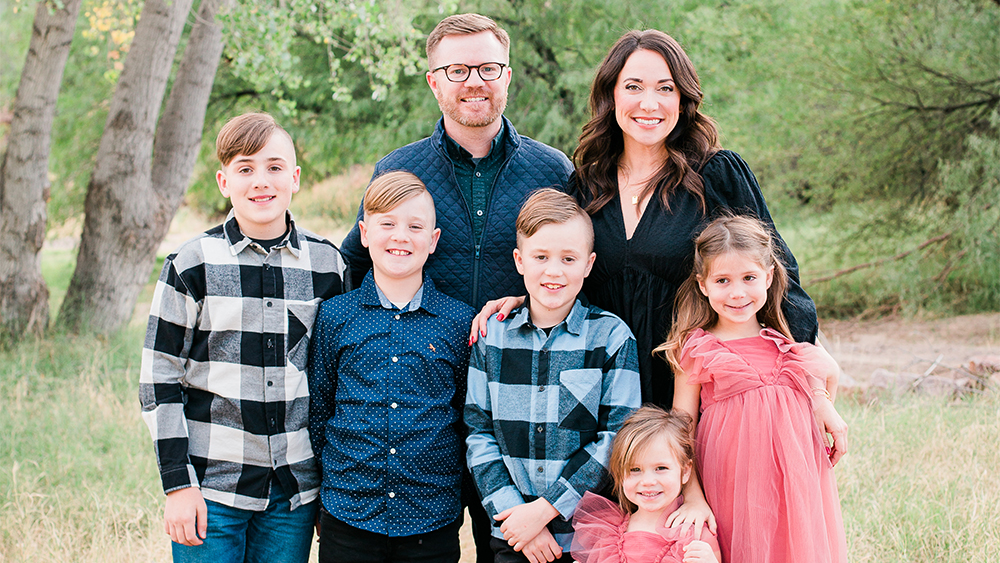
After watching her sons thrive, Clark wanted to make sure that other families had options, too. She founded Love Your School, which helps Arizona families and schools discover the plethora of ways that learning and expanding education is possible. Love Your Schools works with public, district, charter, private, online, homeschool, microschool, learning pod, and any other educational system. Their mission is to help families find the best education for their kids' unique needs, that's it.
"My own kids were significantly impacted by a lack of choice," says Clark. "When we found the choice, I was like 'We need to make sure that other parents don't have to go through what we went through.'"
Love Your School helps families find non-traditional education models that work for them
Receiving assistance from Love Your School generally begins when a parent or educator approaches the organization and describes their current situation and the change they'd like to see. This could vary from a parent wanting to switch to private school but not knowing how they'll afford it; a parent wanting to switch into homeschooling and not knowing where to begin navigating the new system; or a parent recognizing that their child is struggling in school, and needing help pinning down exactly why.
Parents are then ticketed to a specialist in Love Your School's 'Parent-Concierge' service. The organization has experts in a wide-ranging portfolio of areas, including special education options, homeschool transitions, applying for an ESA scholarship in Arizona, or searching for a new school.
It is this one-on-one, personalized support that sets Love Your School apart. Through building relationships with families, concierges are able to empower them to voice not just their immediate needs, but their long-term goals.

"We really pride ourselves in providing expert advice and advocacy to parents," says Clark. "That means that a lot of parents are calling us and saying, 'Hey, our kid is struggling and I don't even know where to start.' We're able to walk them through that process, listen to their story, and provide personalized support, which I think is necessary and lacking in the school choice world."
Solutions can include tuition tax credits, empowerment scholarships, open enrollment programs, microschools, homeschooling, and many other options — whichever path is best for the family's unique story.
For many families, solutions can be found within public schools. Some paths are public, some are private, and some are hybrid: though Love Your School promotes expanding educational options, this doesn't mean that leaving public school is the best route for each child.
"We really focus on the fact that we support all school options, so public school, private school, homeschool, ESAs," says Clark. "We just want families to know what their choices are."
Individualized schooling options help foster community
Just as Love Your School's approach centers on building relationships between education experts and families, its impact has similarly grown through building relationships between families, students, and others in the education world who want to expand what learning can look like.
Clark hosts a podcast, also titled Love Your School, that highlights different educational options each week, with accompanying stories from families who have found success and fulfillment with each. This spreads the word not only of educational options available, but even more crucially, of the ability of families to take their children's futures into their own hands. Families are able to share their unique paths and inspire bottom-up action in each other.
Although Love Your School began in Arizona, the model is now being replicated in West Virginia — not because expansion was planned there, but because local families heard about the work Love Your School was doing and wanted the same opportunity for themselves.
Additionally, Love Your School leaders spend a lot of time seeking out and exchanging ideas with other education entrepreneurs in the field. Their goal is to create a larger network of families, schools, and entrepreneurs, who are able to communicate and support one another as they pursue the educational path of their choice.
"We want to know about those choices, we want to make sure parents know about those choices, and we want to connect those new schools and educational entrepreneurs to their customers, which are parents," says Clark.
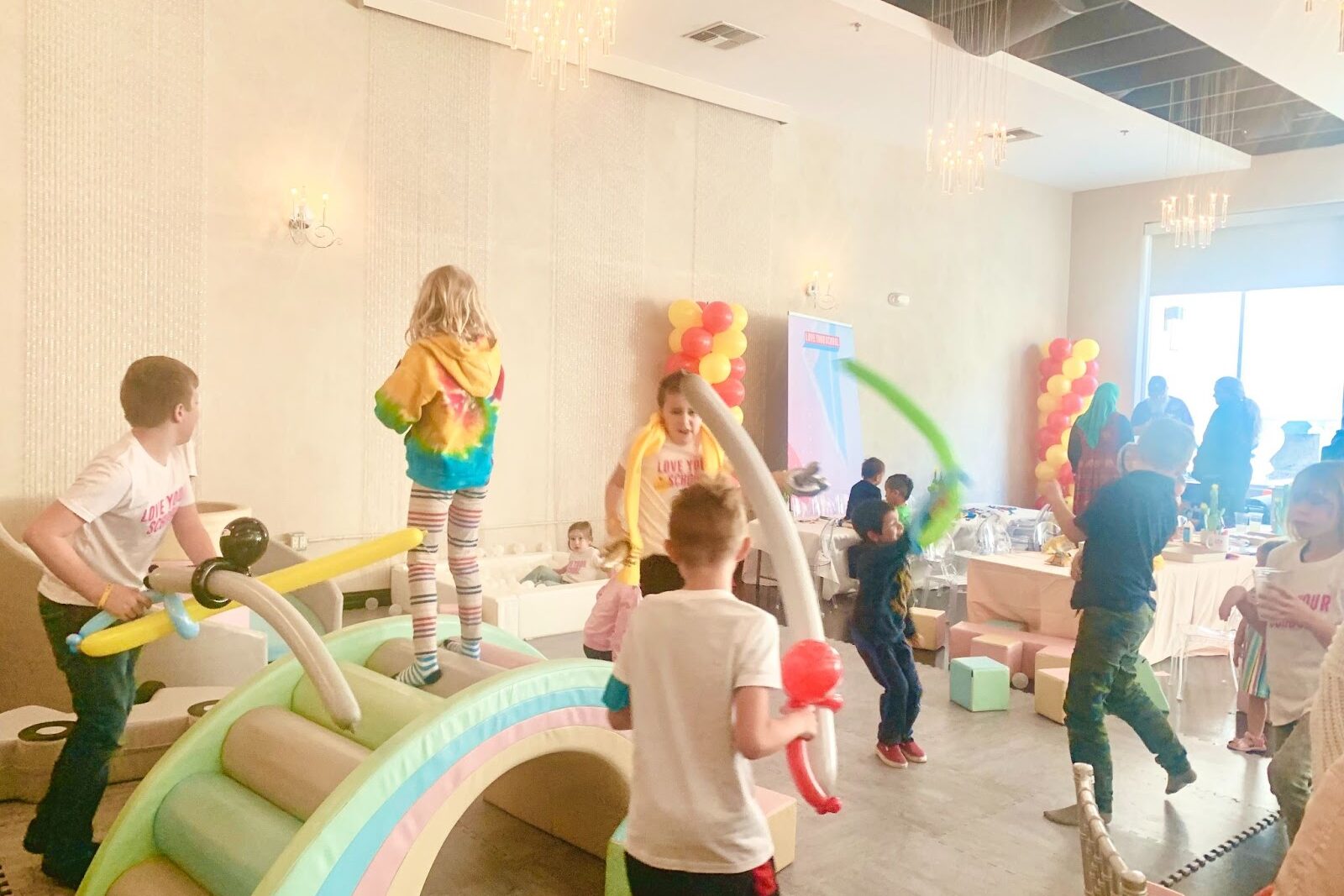
Non-traditional education always comes back to choice
Today, the long-term results of those first educational choices that led Clark to found Love Your School are visible in her two sons. She described walking in on her 13-year-old son engrossed in a copy of To Kill a Mockingbird just days ago.
"I never thought that would happen when he wasn't reading at eight years old," she says. "If we hadn't had the ESA, he would have been another statistic. He would have been another one of those kids who wasn't reading proficiently at third grade because he didn't get the interventions that he needed, and he would've probably seen himself as stupid and been struggling." Instead, both of her sons "feel totally excited and confident about their future."
ESA implementation is expanding across states. Love Your School wants to make sure families know how to make the most of the options available to them. They hope to expand to new regions in the coming years.
To Clark, success has a very clear indicator:
"When asked the question 'Do you love your school?' we want parents to respond with a resounding yes."
***
Love Your School is supported by Stand Together Trust, which provides funding and strategic capabilities to innovators, scholars, and social entrepreneurs to develop new and better ways to tackle America's biggest problems.
Learn more about Stand Together's K-12 education efforts. and explore ways you can partner with us.
